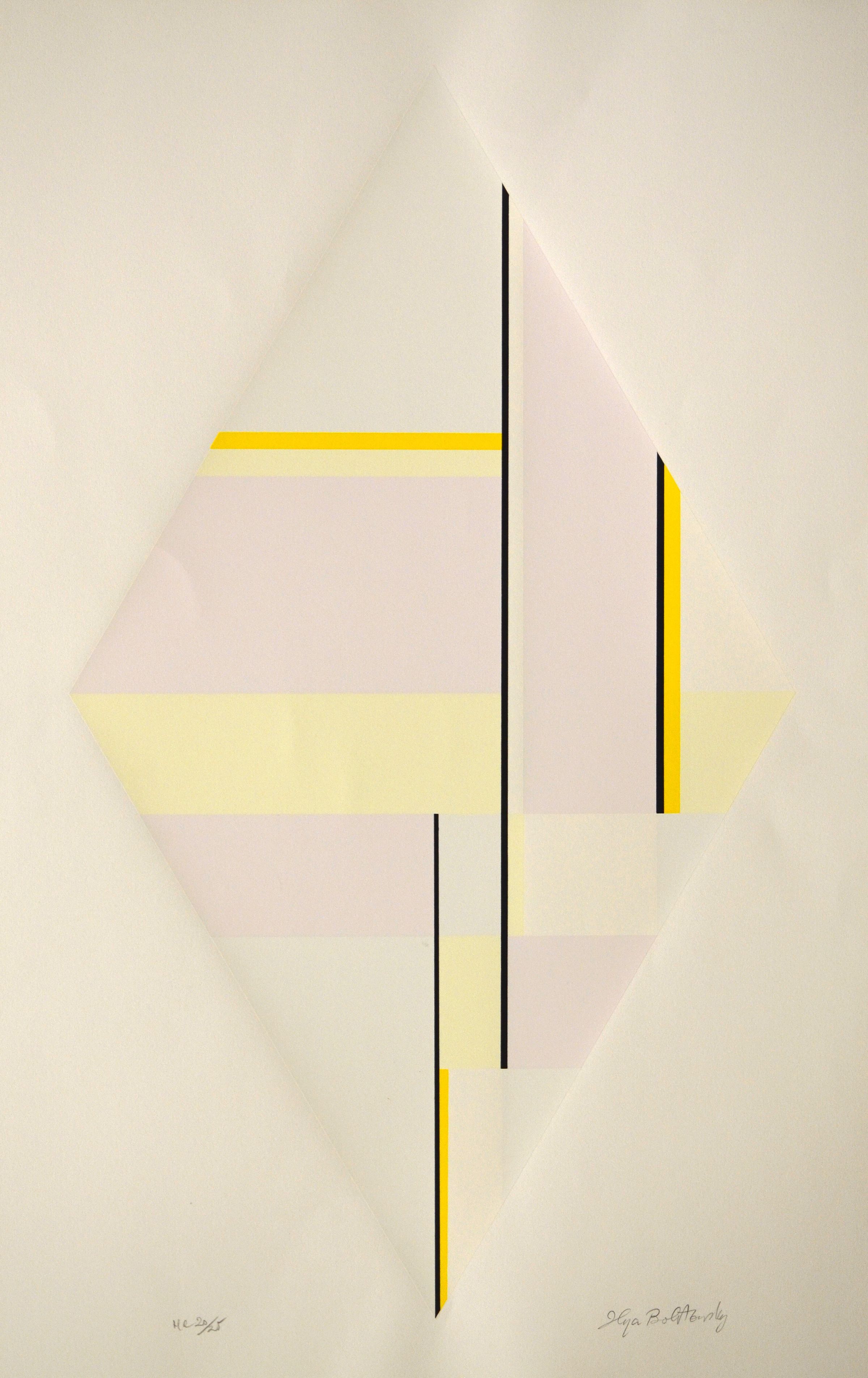Label
2024, "Beyond the Iron Curtain: Visions from the Cold War"
Ilya Bolotowsky (1907-1981), a Russian-born American abstract artist, significantly contributed to the Concrete Art movement, characterized by precise geometric forms and a commitment to visual clarity. Bolotowsky was influenced by Neoplasticism, a style led by Dutch painter Piet Mondrian. Mondrian’s pursuit of an enlightened society of idealized harmony through geometric abstraction, primary colors, and grid structures inspired Bolotowsky's artistic principles. Latin American modern art and early Russian Constructivism share parallels with these principles, embracing universality through geometric forms and a "truth to materials." As a Russian expatriate in the United States, Bolotowsky similarly embraced these principles, introducing softer forms, a more varied color palette, and a wider variety of canvas shapes within the context of American abstraction. The stylistic affinity shared with these communist movements raises questions about his political leanings. Could this be read in defiance of the Soviet Union? Or is he making a more nuanced statement about universality across ideological lines?
Text by Jett Terrill, Washburn student
